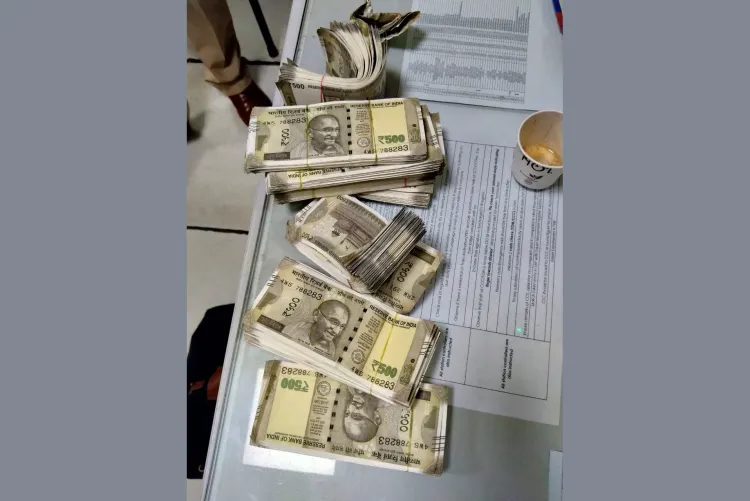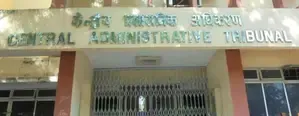What led to DRI’s seizure of Rs 32 lakh from train passengers?

Synopsis
Key Takeaways
- The DRI seized Rs 32 lakh from three passengers.
- Operation based on a tip-off regarding money laundering.
- Cash was hidden in several pieces of luggage.
- Investigations suggest links to illegal interstate transactions.
- Authorities are collaborating with central agencies.
Chennai, May 22 (NationPress) In a remarkable operation, the Directorate of Revenue Intelligence (DRI) officials confiscated unaccounted cash amounting to Rs 32 lakh from three passengers aboard the Hyderabad-Puducherry Superfast Express at Chennai's Egmore Railway Station on Thursday.
Responding to a tip-off regarding potential money laundering activities, a team from the DRI conducted an unexpected inspection as the train pulled into Egmore.
This operation was primarily focused on Aghilan, a suspect from Hyderabad who was already under scrutiny. During the search, DRI officials thoroughly checked the luggage of three individuals: Ashok D Jain (51), a resident of Strahans Road, Pattalam; his son, Shil Ashok Jain (27); and Sangita B. Jain (57), the spouse of Bharat Kumar Jain and a resident of Sowcarpet.
Upon examining their baggage, the team uncovered well-packaged bundles of cash totaling Rs 32 lakh, which were hidden in various pieces of luggage.
All three passengers were detained at the station, and the cash was seized.
A senior DRI official verified that the suspects were brought to their office for further questioning. “We are in the process of interrogating them to ascertain the origin of the cash and its intended purpose,” the official stated.
Preliminary investigations suggest a potential link to illegal interstate financial transactions.
Authorities have not dismissed the possibility of a broader network involved in the smuggling of unaccounted funds.
The DRI is now collaborating with other central agencies to explore connections to hawala operations or other illicit trade routes.
This operation occurs amidst intensified monitoring at major transit stations in light of the approaching financial year-end and elections in certain areas.
Officials suspect that such cash seizures could be part of a larger trend related to the movement of black money through passenger trains.
Further investigations are ongoing, and the DRI is expected to share more information once the suspects’ statements are documented and the cash trail is followed.









